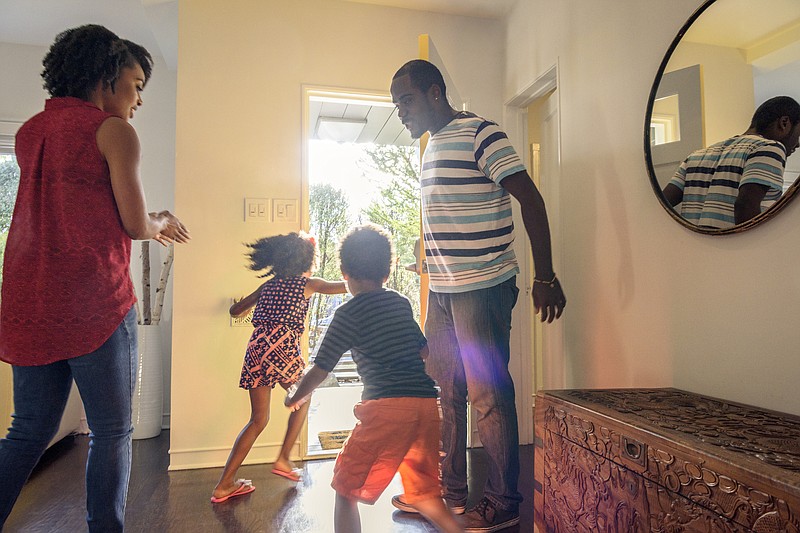For a country brimming with "pro-family" politicians, the United States sure is a tough place to raise a family.
We Americans like to think "We're No. 1," but one recent study found that the United States was the second worst out of 35 industrialized countries as a place for families. We ranked behind Bulgaria. Behind Chile.
Now we have a historic chance to support children and families, for President Joe Biden's American Families Plan proposes programs such as high-quality day care and pre-K that are routine elsewhere in the world. You might think that the "pro-family" Republican Party would be eager to translate platitudes into practical help. But you'd be wrong.
"You know who else liked universal day care?" tweeted Sen. Marsha Blackburn, R-Tenn. She cited the old Soviet Union, apparently suggesting that there is something communist about day care, and falsely claimed that participation would be mandatory under the Biden plan.
J.D. Vance, author of "Hillbilly Elegy," warned, "'Universal day care' is class war against normal people." Sen. Tim Scott, R-S.C., denounced efforts "to put Washington even more in the middle of your life, from the cradle to college." Sen. Josh Hawley, R-Mo., railed at "lefty social engineering."
This is sad because the GOP is right to hail the importance of family. Having loving, supportive parents who read to children, hug them and help them with homework - that's crucial for kids.
Republicans are correct that healthy families make a healthy nation. Democrats sometimes are too reluctant to acknowledge the toll of dysfunctional families, for fear of blaming the poor for their poverty, but it's difficult to have a serious conversation about improving opportunity and equity in the United States without acknowledging the complicated problems in many homes.
Some 8 million American children - roughly 1 in 8 - live with a parent with a substance abuse problem. Millions more live in a household with domestic violence. Others are latchkey kids who look after younger siblings because parents are working and no day care is affordable.
Families desperately need help. In other countries, they get it.
As of 2019, only 34% of American 4-year-olds attended state-funded preschool, and an important new study underscores why America needs national high-quality pre-K. In the late 1990s and early 2000s, Boston offered public programs for 4-year-olds but couldn't meet demand, so a lottery was used to determine which children to accept.
Scholars have now found that the long-term effects of this random assignment were enormous. Children who had been accepted into pre-K were 18% more likely to enter college on time. They were more likely to graduate from high school and get better SAT scores. Effects were particularly strong for boys.
This new study is part of an enormous body of research showing that the greatest leverage we have to help people may be early in life, as brains are developing.
Skeptics say early childhood programs are expensive. Sure - but poorer countries can afford them. And educational failure and juvenile delinquency are even more costly, and also undermine American competitiveness around the world.
Senators say they care about crime. Well, here's a way to reduce juvenile crime: Offer high-quality pre-K. They say they want to help young people attend college. So back the Biden plan for pre-K. In other words, this isn't spending, but high-return investment.
It's odd that Republicans perceive early childhood programs as a Democratic plot. One of the best states for early childhood programs is Republican Oklahoma, and Oklahomans don't see pre-K as communist but as common sense: If you don't invest in children at the front end, you pay at the back end.
Please, Republicans, come to your senses: Helping children isn't the first step to communism. It's a step to strengthening America's families, and thus to strengthening America.
The New York Times
